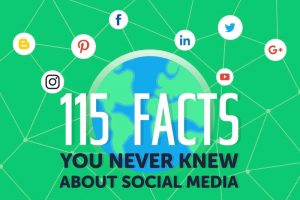
SEO is not a static discipline but it is changing all the time. Industry experts agree that in order to stay competitive on the Internet today, you have to be in synch with the latest SEO techniques and practices.
Google, as the major player in the search industry is constantly making improvements to their search algorithms for the sole purpose of keeping their users happy. Your job as an SEO or digital marketer is to follow their lead and take advantage of the new opportunities created for your website or online business.
Let’s examine below 5 of the latest seo techniques you simply cannot ignore if you want to be a step ahead of the competition.
1 – Mobile is no longer an option
I am sure that most probably you are aware that Google made changes to their mobile ranking algorithm on April 21, 2105. Almost a month after the update and while there are winners and losers, the impact was not as big as originally expected. The reason, according to Google was because webmasters did convert their websites to mobile friendly before the roll out.
What does this mean to you? 2 things. First, If you haven’t already created a mobile friendly website then this is your top priority. Second, Google is already planning the next version of the mobile algorithm which will take into account more factors than just the viewport (think pagespeed, page quality and many more) so you need to be ready in advance since it is certain that the next update will have a bigger impact than this one.
2 – Describe your data using Structured Data Markup (Schema)
Structured data markup is a way to describe your content so that search engines can understand it better. Both Google and Bing have started to use structure data to pull out data from web pages and use it in various ways. It is estimated that in Google alone, 25% of search queries trigger a knowledge graph answer (which is based on structured data).
What does this mean for SEO? For starters it means that you must start using structured data markup within your website’s content and the easiest way to do it is to read this guide by Google. There are a number of schemas you can use the most popular being: organization, events, reviews, breadcrumbs and sitelinks search box.
In addition to increasing your chances of getting more traffic from Google through the answer box or knowledge graph, schema markup implementation will help you create more user friendly websites since it makes you think better on how to best present the information in a page.
Finally, since data markup is a relatively new SEO technique, you have more chances of taking advantage of this before your competitors and this means more quality traffic coming your way with obvious benefits.
3 – Tweet your way to Google
Google and Twitter recently made an agreement by which Google will have real-time access to twitter’s data. It is still early to know exactly how Google will use the millions of tweets but they (Google) already started making tests on how trending tweets can be integrated into Google search results for desktop and mobile.
How is this related to SEO? It is another opportunity to get a top position in Google search results for news, stories and events that are trending. If real-time marketing is important for your business then getting into twitter may also get you into Google.
There is not enough information yet on how Google will decide which of the tweets to include in their search results but most probably they will be looking for latest news, trending stories, popular tweets and tweets with a high number of engagements.
We will wait and see the impact of this business deal but one thing is for sure, if you have to choose one social media network to promote your content and engage with other people in your industry, this is Twitter.
4- Website speed – the faster the better
A few years back Google added web site speed as a ranking factor and while there are some speculations if this is still being used, there are a few things that make website speed performance more important than the possible ranking benefit.
First, several studies show that websites that are faster have more conversions and more earnings from advertising compared to slower websites. This is a given fact and something you simply cannot ignore. If your website is not fast enough for users and even if you rank high in the SERPS, you will lose traffic and business.
Second, speed is definitely a usability factor for mobile friendly websites and since mobile searches are now more than desktop searches, you cannot afford to have a slow loading website. Google is already serving ‘cut down’ versions of mobile websites to users on a slow connection and this is an indication that speed still matters and if they want to ‘force’ webmasters create faster websites, they will definitely add speed as a mobile ranking factor.
5- Link building revised
SEO has changed when it comes to link building. In the past you could build low quality links to a website and get better rankings in a number of months but now not only SEO takes longer to work, but it also depends on the type and way you build links.
With the introduction of Panda and Penguin, Google no longer tolerates ‘link building made easy’ techniques but the focus is on building less but high quality links from trusted and authority websites. This is much harder to do and not everyone can do it and that’s how they are able to differentiate the quality and value of a link.
That does not in any way mean that link building is not important; it is necessary for high rankings (especially for competitive terms) but you should forget about the easy way of doing it.
Guest posting in low quality blogs or commenting for the sole purpose of getting a link back to your website will not get you high rankings and will probably get you into trouble. Your focus should be on promoting your website or brand on websites that matter that have strict policies on accepting and giving links because this is the way to convince Google that your website deserves a better ranking position than your competitors.
Conclusion and final thoughts
SEO is evolving year by year and is becoming more oriented to the user experience than to search engine ranking algorithms. While basic SEO techniques (think on-page SEO) are still important and necessary, off-page SEO has shifted from traditional link building to social media promotion and high quality guest posting. Your job as a modern SEO today is not to count links and do excessive keyword research but to ensure that your data is visible to users and understood by search engines.
(253)
Report Post






